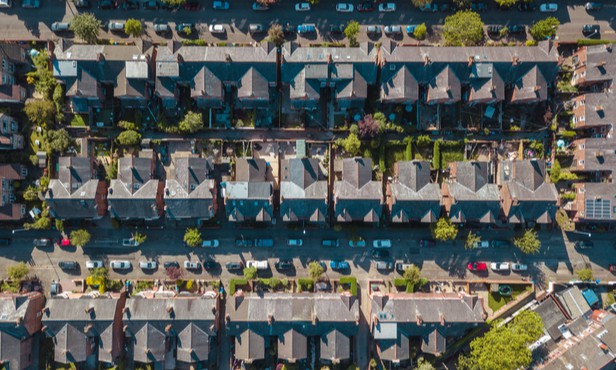Average house prices increased by 8.6% across England and Wales in the year to February 2021, according to e.surv Chartered Surveyors’ House Price Index.

Average house prices increased by 8.6% across England and Wales in the year to February 2021, according to e.surv Chartered Surveyors’ House Price Index.
On a monthly basis, average property prices rose by 1.1% between January and February 2021.
Overall, the average price of a house in England and Wales was £333,331 at the end of February.
On a regional basis, the South West had the highest annual house price growth, at 15.3%, and areas within it such as Bournemouth, Cornwall and Gloucestershire all experienced price growth in excess of 20%.
In contrast, Greater London recorded the lowest rates of increase, up 2.2%.
Richard Sexton, director at e.surv, said: “While our survey recorded continued price rises in February, it suggests the market was continuing to soften ahead of the original deadline for the stamp duty holiday at the end of March.
“The government’s extension in the Budget will give hope not only to those currently trying to complete but possibly stoke expectations that activity may reignite.
“The extension though is largely about helping clear the backlog rather than adding further significant stimulus and our belief is that the success of the market for the rest of this year is inextricably linked to the health of the wider economy.
“In the Budget, the government underlined its commitment to the housing market with the announcement of its new mortgage guarantee scheme.
“This is welcome because although mortgage approvals have reached record highs in recent months, raising a deposit continues to be a huge hurdle for many buyers to overcome.
“The government guaranteed scheme will really help some potential buyers accelerate their home-buying plans and offer a helping hand to borrowers wanting to trade up.
“What we have seen over the past few months is that demand regionally has been fuelled by changing housing preferences as a result of the pandemic and the lockdowns of the last year.
“The regions have benefitted as city dwellers have opted to embrace working from home with far less commuting.
“The pandemic has changed what many people want in a property and, in many cases, they are leaving big cities for smaller towns or more rural areas.
“Lifestyle changes and the stamp duty change have worked together to underpin the price rises of the last year.”



